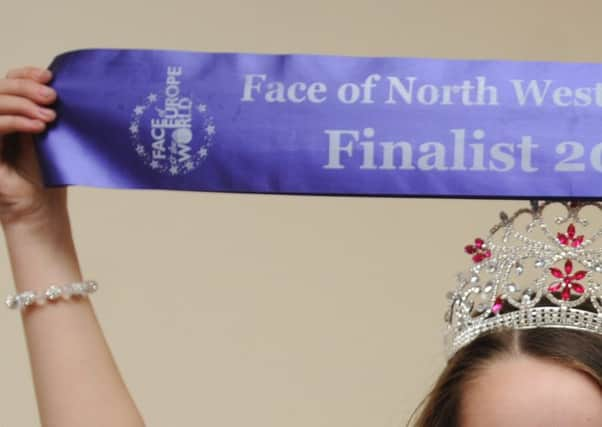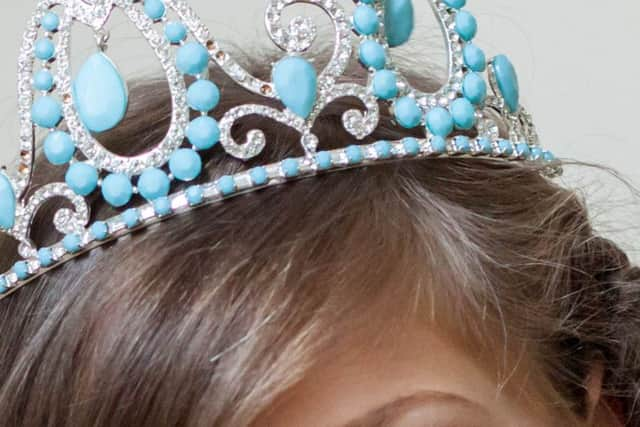In beauty pageants, girls are paraded as if it's a human Crufts competition


An astronaut? A teacher? A vet? Or, just happy?
Before a girl even develops a full sense of self, she is complimented on how ‘pretty’ she is. As though this is the true measurement of her success as a female member of the human race.
Whilst my daughter was very young and still barely mastering the art of walking without falling over, well-meaning family members and strangers were telling her what a pretty little girl she was.
Advertisement
Hide AdAdvertisement
Hide Ad

So begins the invidious process of damnation through misdirected praise, a burden that we all too easily allow to fall on girls and women everywhere.
Whilst it is true that boys are sometimes praised for being handsome, it is more often the case that they are complimented on being strong young men and how brave they are in the face of skinned-knee-related traumas, it is the little girl’s appearance that is prioritised.
It is this apparent triumph of appearing over being, the appeal of what is on the outside rather than the quality of what is on the inside, that proves to be so costly.
When we measure a human being by how they seem rather than who they are, everyone stands to lose.
Advertisement
Hide AdAdvertisement
Hide Ad

And all of this before they ever pick up a fashion magazine, where they are told on every page how they are not good enough, imperfect, born flawed (but, perhaps, if they buy this product or that, they might be able to remedy this).
From a young age, while they are preparing to find and build a place for themselves in the adult world, their skills, passions and talents are down-played and undervalued, or, worse still, totally ignored.
Now that a beauty pageant for children is coming to Northern Ireland, what affect is this going to have on impressionable young girls?
Although, to the organisers credit, unlike some American versions, there is no swimsuit-round, and fake tan and make up are prohibited for under fives, these girls will be trussed up, paraded like entrants in a human Crufts competition, and made to compete with each other (which encourages a whole other set of problems) on, ultimately, how they physically present themselves to the world.
Advertisement
Hide AdAdvertisement
Hide Ad

They will be encouraged to be as cute and alluring as possible, as well as utilising modelling tools such as, according to the guide, “over-exaggerated facial expressions, heavy arm movements or swaying when walking, pouts, winks, clinched cheeks, raised eyebrows, sparkly eyes, pointing at judges, excessive head tilts, removable clothing, prissy walks, fast walking, heel hops or boot scoots in western wear, etc”.
To be, in effect anything but themselves.
Yet, there is much more at stake than pursuit of artifice and the embrace of deception: these behaviours and movements enforce adult behaviours and movements upon the children whilst training them for a world which places value on them for how attractive they are.
It creates the impression that validation is reliant on an external source, rather than something from within.


By entering the girls or, more specifically, the girls’ parents agree that, should they be successful, they will not endorse any other organisation, accept acting roles or suchlike from any other party or make any other appearances without the permission of the pageant organisers.
Advertisement
Hide AdAdvertisement
Hide AdThey are contractually owned by the model agency/pageant organisers.
There is an almost tragic irony in fact that all of this is happening at a time when these girls are struggling with learning how to even spell ‘contract’.
And what of the ones who don’t ‘win’? What will happen to their self-esteem? After being told how pretty they are, being encouraged and at times pushed, by parents to enter, dressed up like living dolls, when they should be playing, discovering the world and themselves and developing their passions and talents.
When they leave dejected, will clichés such as ‘it’s the taking part that counts’, be enough to stop the creeping feeling of not being good enough or setting them up for a future of possible body dysmorphia, low self-esteem and poor self-image?
Advertisement
Hide AdAdvertisement
Hide AdParents I urge you to stop the exploitation and objectification of our daughters.
Ask a little girl what she likes to read, what are her hobbies?
Ask her who she is now and what she wants to be in the future, help her on that journey rather than on a false path of looking like and seeming to be.
If you are thinking of entering your daughter, ask yourself, is it for her or for you?
Advertisement
Hide AdAdvertisement
Hide AdOnly by encouraging a sense of self-esteem that is not based on the fragile and superficial will we raise a society of confident, smart and capable young woman to take on a world in which was once content to overlook them and ultimately create a better one, for all of us.
• Miranda Pass is a student and mother of a young daughter. Alex Kane is away and will return later this month